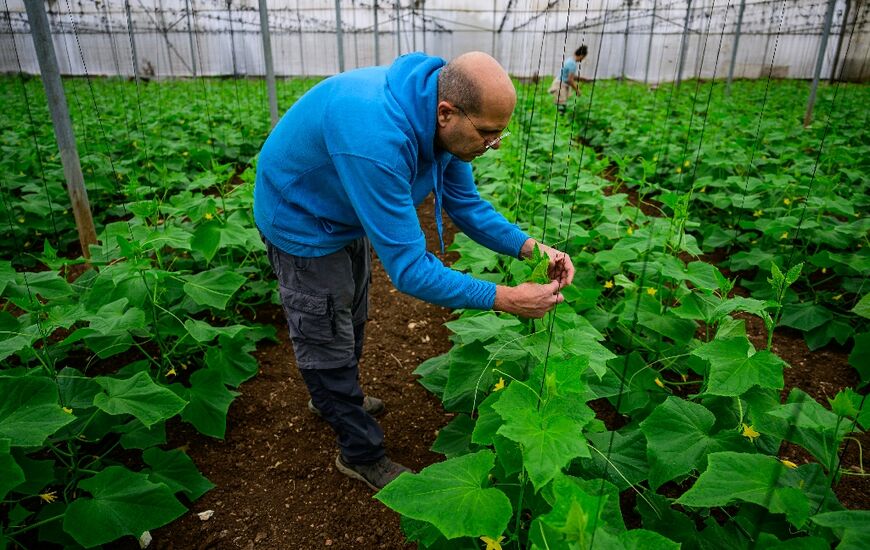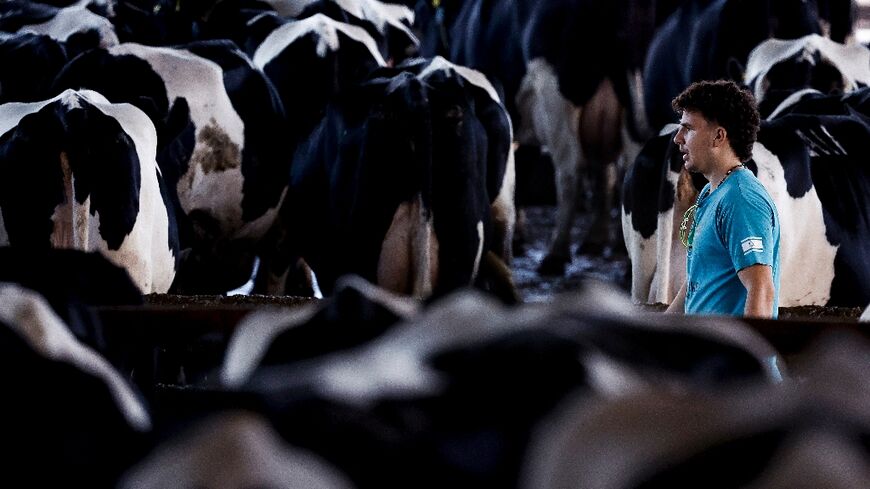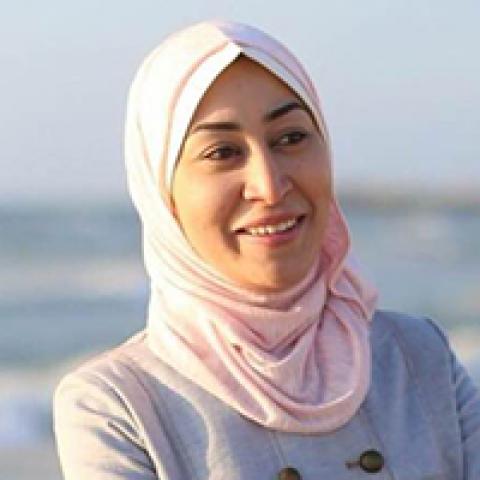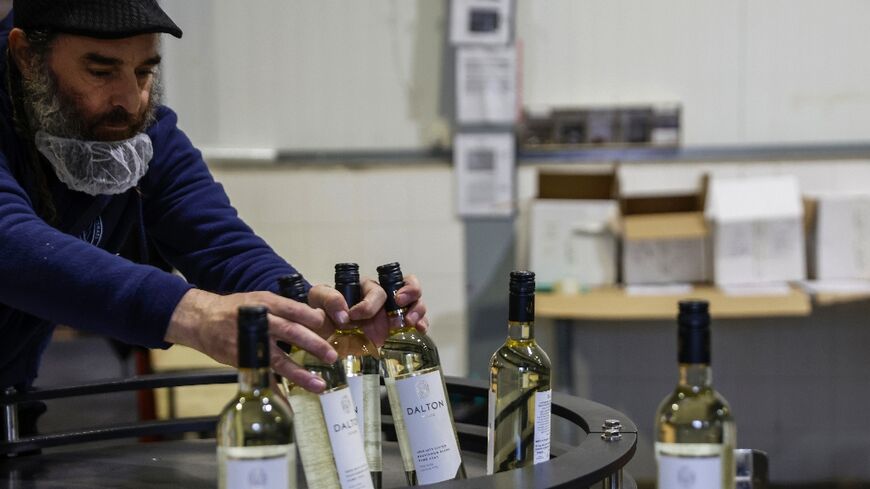Volunteers help Arab-Israeli farmers amid Gaza war

In Baqa al-Gharbiya, an hour's drive from Haifa, city folk have temporarily traded pens for boots to aid farmers in Israel facing a labour shortage exacerbated by the Gaza war.
Whether teachers or lawyers, Arab or Jew, they have come together during their leisure time to lend a helping hand to Arab-Israeli farmers like Marwan Abu Yassin for the harvest.
Arabs with citizenship account for around 20 percent of Israel's population, descendants of Palestinians who remained after mass expulsions at the time of Israel's founding in 1948.
"I had 16 Thai workers, but nine left the country because of the war, and I had 15 workers from the West Bank who no longer come to Israel because of the roadblocks," said Abu Yassin, 55.
The war in Gaza began on October 7 when Hamas militants from Gaza stormed across the militarised border into Israel, killing around 1,200 people, most of them civilians, and taking around 250 people hostage, according to Israeli figures.
Israel retaliated with a devastating air and ground offensive that has killed more than 18,700 Palestinians in the Gaza Strip, around 70 percent of them women and children, according to the Hamas-run health ministry.
Since the war began, Israel has suspended work permits for around 130,000 day workers from the occupied West Bank.
The Israeli government's war cabinet is torn over whether to allow the return of Palestinian workers, with some suggesting workers be brought in from places like India.
The farm sector has also lost many from its other key source of labour -- Thais -- who numbered some 30,000 before the war.
Many have fled the country after October 7 attack, which saw 34 Thai nationals killed, 19 wounded and 24 taken hostage, all of whom have since been freed, according to Thai authorities.
- 'Boost to farmers' -
It was the farmers themselves who launched calls for volunteers, said Ibrahim Mawasi, 65, who helped coordinate the effort.
"A week after the war, we got together and decided to mobilise all the people who wanted to save agriculture," he said.
Though they have helped, Mawasi said they really needed experienced farmers.
On Abu Yassin's farm, he normally cultivates 150 dunams (around 15 hectares) of land, but can only work around 50 this season, with only seven employees, and still has costs to maintain the rest.
In his fields, volunteers were picking cucumbers, placing seedlings on stakes, and were preparing for the strawberry harvest when the rains interrupted them.
Yusef Sader, a retired physics teacher, said he knew the work would leave him exhausted, but was happy to have "given a little boost to the farmers."
For Guy, 56, an Israeli Jewish social worker who did not give his surname, volunteering for the harvests was "very important for good relations between Jews and Arabs".







